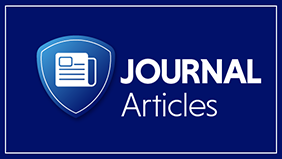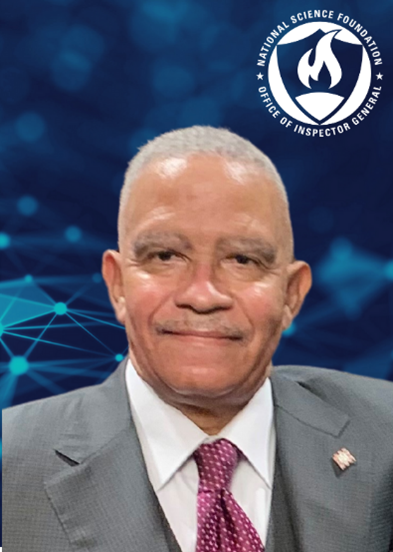
Promising Practices in Evaluating Federally Funded Award Portfolios
Publication Date: December 4, 2023
The mission of the National Science Foundation (NSF) Office of Inspector General (OIG) is to provide independent oversight of NSF to improve the effectiveness, efficiency, and economy of its programs and operations, and to prevent and detect fraud, waste, and abuse. That mission extends to overseeing the 11,000 grants, cooperative agreements, and contracts that NSF awards annually to more than 2,000 colleges, universities, and other institutions. These awards fund basic and applied research; support science, technology, engineering, and mathematics (STEM) education; and help strengthen the U.S. research enterprise.
We conduct audits and reviews of NSF’s award recipient organizations to ensure they follow applicable federal regulations and NSF terms and conditions, and that costs claimed on NSF awards are allowable, reasonable, allocable, and necessary to complete award objectives. Through this work we’ve had the opportunity to identify areas of elevated risk that are common to managing federal awards, as well as trends and practices that can help enhance stewardship of federal funds.
A Resource for College and University Auditors
We regularly contract with independent public accounting firms to conduct audits of NSF award recipients on our behalf. In 2022, we published a capstone report, Promising Practices for NSF Award Management, which cataloged our contractor’s observations of award recipients’ control weaknesses and strengths over a 3-year period. The report includes the 5 most frequent finding categories we identified, 46 distinct examples of our most common findings, and promising practices we observed to strengthen controls within those areas. We believe this report will provide a strong foundation for any college or university auditor to develop a risk assessment or audit program related to their institution’s federally funded award portfolio.

Common Finding Categories
The most common audit finding categories at the institutions we audited included:
- Unallowable expenses ― We identified costs related to unallowable travel, participant support, salary, material/supply, fringe benefit, publication, consultant, and subaward costs charged to NSF awards.
- Inappropriately applied indirect costs ― Recipients did not always apply indirect costs to the appropriate Modified Total Direct Cost base and did not apply indirect costs at the rates approved within the recipient’s Negotiated Indirect Cost Rate Agreements.
- Inadequately supported expenses ― Recipients did not always maintain sufficient evidence to support costs claimed in NSF’s Award Cash Management Service, costs billed by internal service providers, and travel, salary, and consultant costs charged to NSF awards were allowable per federal and NSF regulations.
- Inappropriately allocated expenses ― We identified instances where recipients inappropriately allocated travel, materials and supplies, publication, and student stipend or tuition costs to NSF awards.
- Non-compliance with policies and procedures ― Recipients did not always comply with, or did not document their compliance with, organization and NSF program-specific policies and procedures.
Promising Practices
The report identified the following promising practices that could help decrease the likelihood of recipient non-compliance with federal and NSF criteria, as well as improve the stewardship of federal funds:
- Continually monitor and verify the allowability of high-risk expenses. Recipients were less likely to charge unallowable costs to NSF awards if they implemented processes for the continuous monitoring of high-risk expenses, rather than waiting until after the award expired to review the allowability of the expenses.
- Strengthen controls over applying indirect cost rates. For example, recipients could implement controls to identify when indirect cost rates change between the proposal submission date and the award date and establish guidance identifying the appropriate indirect cost rate for sponsored projects awarded during provisional rate periods.
- Ensure recipients create and maintain sufficient, appropriate documentation. Recipients with more robust requirements for documentation creation and retention were more likely to maintain sufficient, appropriate documentation to support that expenses charged to NSF awards were reasonable, allocable, and allowable.
- Document and justify reasonable allocation methodologies. Recipients that require staff to document and justify reasonable allocation methodologies when purchasing goods and services were more likely to maintain sufficient documentation to support that they had allocated sampled expenses to NSF awards consistent with the relative benefits received by those awards.
- Regularly review and update grant management policies and procedures. Recipients would have benefited from reviewing and updating their grant management practices on a regular basis. Many noted that their policies did not accurately reflect their current procedures, or they were already in the process of updating the cited policies and procedures.
We hope our Promising Practices for NSF Award Management report will serve as a valuable tool as you evaluate your institution’s federally funded award portfolio. If you have questions, please feel free to reach out to us at OIGPublicAffairs@nsf.gov. Our audit reports of NSF funded institutions can be found on our website.
To report research misconduct or other forms of fraud, waste, abuse, or whistleblower reprisal, please contact us by:
- Web: oig.nsf.gov/contact/hotline
- Anonymous Hotline: 1.800.428.2189
- Mail: 2415 Eisenhower Avenue, Alexandria, VA 22314 ATTN: OIG HOTLINE
About the Authors
From This Issue
- Poll: Who Is Using AI?
- ACUA History Challenge
- ACUA 2023 Award Winners and Board Members
- Letter from the Editor
- Letter from the President
- Multi-factor Authentication vs. Single-factor Authentication: Safeguarding Your Digital World
- Leveraging Technology and AI Tools in Internal Audit: Enhancing Efficiency and Effectiveness
- Basic IT Tests for Departmental Audits
- Considering Culture in Audits


